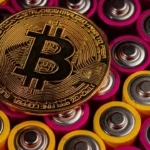Solana Degens Funding Tumor Research: How Memecoin is Changing Charity.
In a groundbreaking move, a group of Solana “degens” (degenerates, a term used in crypto circles for enthusiastic traders) has taken an innovative approach to fundraising for medical research. By leveraging the power of memecoins, a relatively new digital asset class, these crypto enthusiasts are helping fund rare tumor research. The idea of using memecoins, which are typically associated with lighthearted, non-serious trading, to support a serious cause may seem unconventional, but it reflects the growing potential of blockchain and cryptocurrency in philanthropy.

Memecoins are frequently viewed as a joke in the cryptocurrency community, lacking the real-world utility of established coins such as Bitcoin or Ethereum. However, their meme-driven popularity has propelled them to the top of the digital asset market. What started as a meme on the Solana blockchain swiftly gained support and grew into something with the potential to significantly impact healthcare research.
Also Read: ethereum-price-set-to-dip-to-3000-why-buying-the-dip-could-be-a-smart-move
The campaign, led by the Solana community, has gathered funding for rare tumour research, with a particular emphasis on tumours that are understudied due to their rarity. The project’s success demonstrates the potential of cryptocurrencies, including memecoins, to drive positive change. Using Solana’s quick and low-cost blockchain, these cryptocurrency aficionados can donate and track cash in real time, assuring transparency and efficiency in their philanthropic efforts.
While some may criticise the value of memecoins, this movement demonstrates their potential beyond conjecture. In addition to advancing research, it fosters a sense of community. Because of Solana’s decentralised nature, everyone, regardless of location, may participate and donate to the cause, assuring global support for the fight against uncommon tumours.
Furthermore, this endeavour demonstrates a novel approach to use blockchain into charity activities. Traditional fundraising sometimes involves middlemen, but blockchain technology’s transparency and directness eliminate the need for intermediaries. This allows funds to go directly to research organisations, eliminating unnecessary delays and overhead costs.
While this programme is still in its early stages, it proves that even the most unorthodox assets, such as memecoins, can have practical applications. As the project progresses, greater emphasis is being placed on how blockchain technology, cryptocurrencies, and decentralised communities can address concerns such as rare tumour research.









